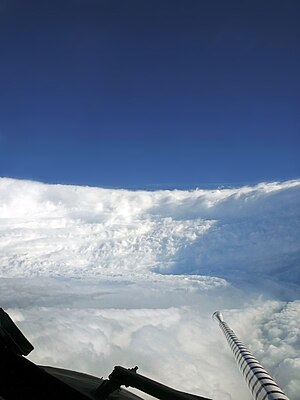Yesterday, my home state experienced a bad weather day. Very bad. As of the time I am writing this, the fatality toll is well over a hundred, nearing a hundred-fifty. Oftentimes in such a wide-spread disaster event the death toll will rise and begin to fall as things are sorted out. This number is nowhere near a peak yet. None of my comments will be trying to make light of those deaths or the destruction. Remember that as you read. Among the reports I have heard yesterday and today have been comments of this having been a historic storm and eye witnesses who have said that they have never seen destruction on this scale. Every storm, whether natural or man-made is a historic storm. It will never be repeated, and should never be repeated. I chalk that one up to someone who is trying to use fifty-cent words to sound more intelligent. Some people think I do that, but those who talk to me on a regular basis know I write like I talk, and I talk like an arrogant prick who uses big words, only I use them because they are more precise. Because I can justify it proves the label, but I did not hold the words against the speaker.
The second statement, however is not so. To those who say that they have not seen destruction on this scale I say, you need to get out more. This is not a statement lightly made. I have witnessed first hand some destructive forces of nature. I was in Hurricane Frederic and Elena. My Katrina story is coming, but I was there to retrieve my mother, father, sister, and nephew 5 days after it hit. I saw things that no one ever imagined being destroyed that were destroyed. There is not one second where I would claim to have seen the most destruction or the worst destruction. What I have seen is enough damage and destruction to know what it is like to see it, experience it, be immersed in it, and to come out stronger because of it.
When a hurricane is coming, seasoned residents cut their grass the day before. The really seasoned ones have an ax in the attic. You just cannot tell when you may again be able to cut the grass after the storm so you cut it beforehand. During the storm you call everyone you know to check on them. The power goes out but the phone still works. You hang up with one person and call another. It is just what you do. It sounds dumb, but it is what you do. The first night after the storm, your whole neighborhood eats like a king. Steaks, chicken, pork chops, deer, vegetables, everything in the freezer is put on the grill. Ever had a moment when you could not give away a filet mignon? I have. Your neighbors eat like you because there is no power to keep it any longer. Again, it sounds dumb until you are in it, then it is just what you do.
The morning of 29 Aug 2005 I talked with my dad, my mom, my sister, my aunts, my uncles, my grandmother, my cousins, until about 10:30. The storm was well ashore, but it had not finished passing through Biloxi yet. After 10:30 I could only get my sister and the relatives that lived away from MS. Last I heard my parents' house had 4 feet of water in it. Then nothing. Everyone I called knew nothing. I talked to people I had not seen or heard from in 15 years. I kept everyone else informed, and started collecting water, food, tools, etc. for a relief run. Katrina hit on my sister's birthday, she was born 2 years and 2 days before me. Wednesday afternoon my dad called. I told him I was worried about him because of the 4 ft of water. He asked why, and I said, "Dad, Mom's only 5 feet tall." He said, "Whatever." Over the course of the next 2 hours I found out every one of my relatives was alive. It was the greatest birthday present I have ever received.
At that time, many people around me were incredulous that people stayed, that they were going to stay. I met a carload of people from New Orleans at our church shelter who had been wiped out three times by hurricanes and were anxious to get back home and clean up (I could only keep my parents in central Alabama for 3 days before they went back). No one seemed to understand it. I was interviewed by one of my local television stations down in Biloxi on the grounds of the Church of the Redeemer. While they filmed me, behind me was not the bell tower that had withstood Camille, Betsy, Elena, Georges, lighting, the War Between the States, etc. It was the foundation only. The bell lay amongst the ruins of the Camille memorial to the cameraman's right. I summed up all the emotion and the disbelief of others by telling the reporter: Come back and see what is here. It may be months, it may be years, but the same spirit that kept these people in their homes during this storm will rebuild this town. It will again be the jewel of the Mississippi Gulf Coast.
I have seen destruction. I have seen personal belongings destroyed. I understand the difference between seeing something and thinking, "Wow! What damage" and "How will I find my life, where will I sleep, what will I do." I do not take damage lightly, I do not take destruction flippantly. I have seen the highs and lows, I have lived the highs and lows.
Yesterdays events began early in the morning on my way to work. My town was hit with straight line winds around 6 am. Then the weather turned nice for 12 hours. Then the tornadoes came by. After work I went to help a friend who had already re-found his totaled car and house from amongst the downed trees. Tonight after work I will look to find someone else I can help. Whether you live in Alabama or somewhere else, put aside your disbelief and wondering eyes and pitch in. Go help rebuild something even if you do not understand why someone would want to live there. In a trailer park, in the line where tornadoes blow, by a hurricane, earthquake or volcanically active area. And bring pop tarts and canned spaghetti. They taste great hot, but you can eat them cold; they clean up quick and they taste like fine dining after a day of sweating, cleaning, clearing, and getting to know the person whose house was destroyed, whose car was swept away. Connect with another human for the sake of no personal gain of your own. You will be amazed at what you will take away, and you will never again hear "historic storm" or "destruction on a scale like this" the same again.
Updated with a link I found on Twitter:
I like pictures 13, 9, 4, and 1 best. What about you?
http://www.boston.com/bigpicture/2011/04/tornadoes_kill_over_200.html
Updated Update:
Tomorrow my 12-year-old is going out to help others with the Illumin8 Leadership Team of 5th and 6th Graders of First Baptist Pell City. Now she's throwing out the gauntlet, too. Who's going to take that challenge?




